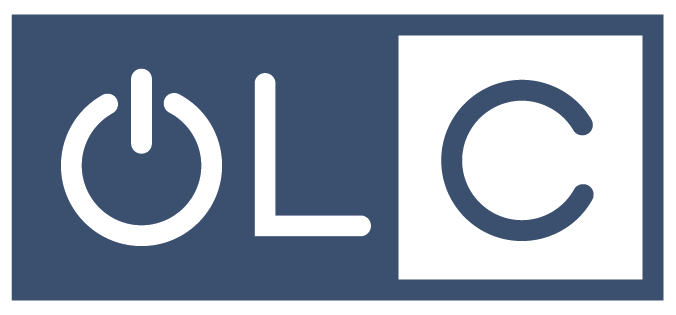- Development Opportunities
-
Excellence in
Online & HyFlex Instruction - Instructional Design
-
Faculty Resources
- New Faculty Essentials
- The FDIP Podcast
- Active Learning in Action
- AI Resources
- AI & Academic Integrity Guidance
- Syllabus Statements
- Infographic Project
- Assessment Strategies
- Faculty Support & Wellbeing
- Student Support & Services @ EIU
- Faculty Online Resources
- FDIC Kaltura Video Gallery
- Faculty & Staff Diversity Plan
- Guidance on Respondus & Academic Integrity
- Funding Sources
- Digital Accessibility
-
Instructional
Technologies - About Us
OLC @ EIU

Online Learning Consortium (OLC) Standards:
The OLC Quality Scorecard provides a holistic framework for evaluating and improving online education at both the course and institutional levels. The mission of the OLS is to creating community and knowledge around quality online, blended, and digital learning while driving innovation. OLC offers a robust suite of Quality Scorecards which can be used to evaluate elements of quality within online courses and programs, providing guidance for individuals and institutions in achieving and demonstrating an overall level of quality to potential students and higher education accrediting bodies.
Key characteristics:
- Comprehensive approach: Covers institutional strategy, course design, and delivery.
- Flexibility: Allows for adaptation to different institutional contexts.
- Community-driven: Developed through collaboration with educators and institutions.
- Focus on innovation: Encourages the use of new technologies and pedagogies.
- Less prescriptive: May not provide as much specific guidance as QM but encourages consulation with instructional design experts.
- Flexible review process: Rahther than the structured peer-review system of QM, OLC focuses on self-assessment, continued self-monitoring, and improvement.
Below is a table comparing OLC and QM in key course design and instrution standards:
|
Course Design Standards |
Online Learning Consortium |
Quality Matters |
|
Course Learning Objectives and Alignment |
Stresses the importance of learning objectives Focuses on broader alignment with program and institutional goals Encourages flexibility in how objectives are formulated and assessed
|
Emphasizes clear, measurable learning objectives Requires strong alignment between objectives, assessments, and materials Provides specific criteria for writing and evaluating learning objectives
|
|
Instructional Practices and Pedagogy |
Addresses both course design and delivery Promotes active learning and student engagement strategies Encourages innovative pedagogical approaches and use of technology |
Focuses on course design rather than delivery Encourages use of varied instructional materials and activities Emphasizes accessibility and usability of course components |
|
Assessment and Feedback |
Addresses assessment design and implementation Encourages diverse assessment methods Emphasizes the importance of timely and constructive feedback Encourages regular and substantive interaction |
Requires clear grading policies and assessment criteria Emphasizes alignment of assessments with learning objectives Focuses on the design of assessment tools |
|
Student Support and Engagement |
Takes a broader view, including institutional support services Addresses strategies for promoting student engagement and interaction |
Focuses on providing clear instructions and resources within the course Emphasizes course-level support mechanisms
|
|
Faculty Support and Development |
Addresses faculty support more comprehensively Includes standards for ongoing faculty development in online teaching |
Primarily focuses on training faculty in course design Offers professional development through the review process |
|
Digital Accessibility |
Addresses accessibility throughout its quality framework rather than as a standalone standard Considers accessibility at both course and institutional levels Includes considerations for diverse learner needs beyond technical accessibility Incorporates principles of UDL throughout its standards |
Dedicates a specific standard (Standard 8) to accessibility and usability Provides detailed, specific criteria for making course materials accessible Includes guidelines for alt text, captions, transcripts, and color contrast Incorporates principles of UDL throughout its standards |
|
Technology Integration |
Provides broader guidelines for technology integration Encourages innovative use of emerging technologies |
Focuses on the effective use of technology to support learning objectives Emphasizes accessibility and user-friendliness of technology |
|
Continuous Improvement |
Encourages continuous improvement at course, program, and institutional levels Provides frameworks for ongoing evaluation and enhancement
|
Emphasizes ongoing course refinement through the review process Focuses on improving individual courses
|
|
Cultural Responsiveness and Diversity |
Includes more explicit standards related to cultural diversity and inclusivity Encourages culturally responsive teaching practices |
Addresses accessibility and universal design Limited explicit focus on cultural responsiveness |
Downloadable table: OLC QM Comparison (PDF)
The written information and resources are developed or curated by the
Faculty Development and Innovation Center
phone 217-581-7051 :: email fdic@eiu.edu :: web eiu.edu/fdic
Contact the FDIC for instructional design related questions or to schedule a consultation appointment. The FDIC staff can recommend instructional design strategies for your online, hybrid, and face-to-face courses.
Last updated: June 27, 2024
